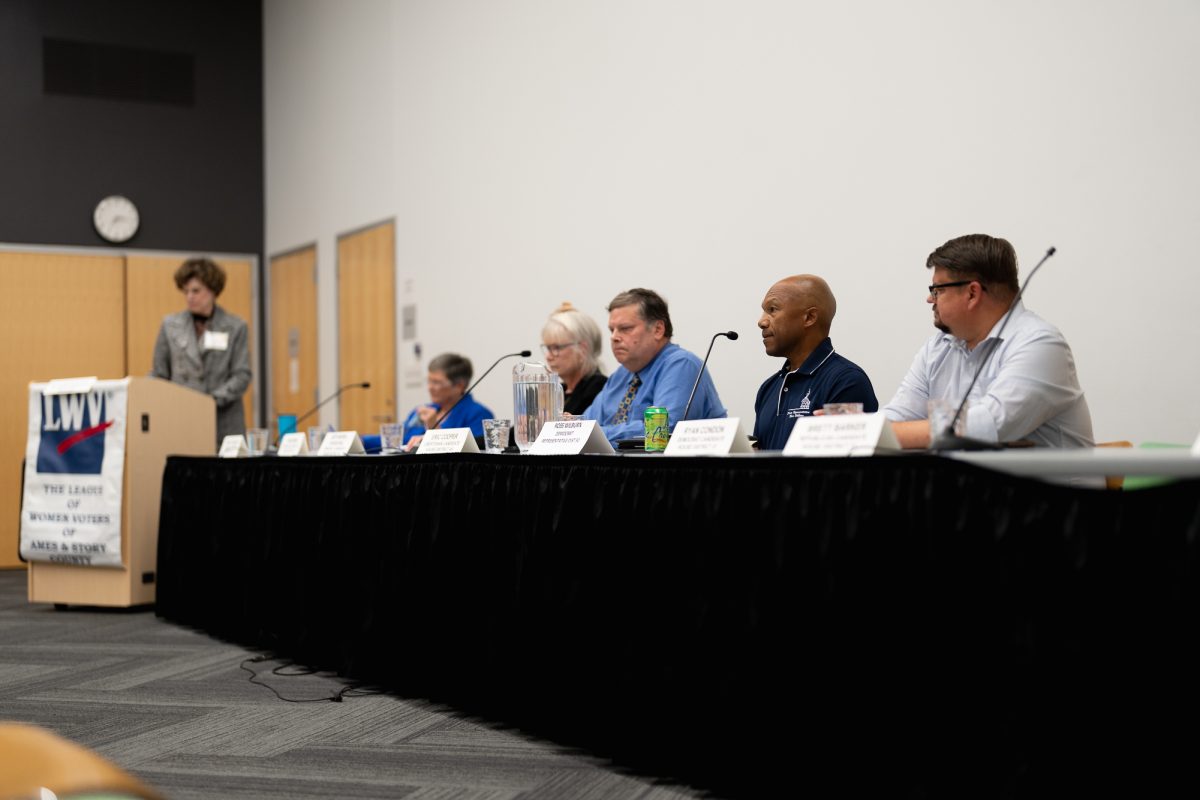Response to death penalty
April 4, 2000
To the editor:
I am writing in response to the many recent articles focused on the death penalty. All of the writers admitted that innocent people are being murdered in the process that is supposed to be serving justice.
If even one innocent person has the chance of being killed, that is one person too many.
Luckily, more than 80 people who were sentenced to death row have now proved their innocence. How many more innocent bystanders have been killed to relieve the pain of victim’s families?
Does killing an innocent person relieve the anguish that a victim’s family and friends go through? No.
If an innocent person is accused, the guilty person is still at large.
Often times, the law is too hasty to find a suspect, and all the essential evidence needed to find the guilty person isn’t gathered.
To relieve the family, the law finds the first person they can accuse of the crime, which in many cases leads to the conviction of an innocent person.
What happens when a person is found guilty, sentenced to death and later evidence comes through that clearly shows the innocence of this so-called murderer?
Do you tell that person’s family the judicial system made a mistake? There is no way to correct this error once it is made. The system then becomes the same monster it was attempting to persecute.
A few of the many reasons innocent people are convicted include false testimonies, false evidence and people withholding evidence.
Because of these false statements and accusations, an innocent human being’s life is torn apart.
In addition, racial prejudice of police, witnesses and the jury and inadequate defense produce incorrect verdicts. Most people who face the death penalty cannot afford to hire their own attorneys, and as a result, the state hires ones who turn out to be inexperienced and unqualified to handle murder cases. Sadly, the loss of this fight can lead to the death of an innocent individual.
If someone manages to prove his or her innocence, it occurs by some miracle. Other times, the media plays an essential role in finding evidence to prove a person innocent.
However, most people sentenced to death row are unable to prove their innocence due to their lack of resources. Even those who are able to prove their innocence are sometimes put to death because of a fault in the judicial system.
A Texas man was able to prove his innocence with newly discovered evidence and a statement by a judge who said someone else committed the crime. If you think that this man was released, you think wrong.
The Supreme Court ruled that this man was not entitled to a hearing, and he was executed last May. The courts, in many cases, do not accept new evidence that clearly confirms a person’s innocence.
The last resort is then clemency, which can only be granted by the governor of that state. Not surprisingly, Texas, which has the highest rate of executions, has never granted clemency.
Many innocent people are being denied the chance to prove their innocence and, as a result, are being unjustly murdered. The system that is supposed to protect people often does the opposite.
Until we can find a way to ensure that innocent people are not being sentenced to death, the death penalty is unacceptable.
Kimberly Johnson
Freshman
Animal ecology






